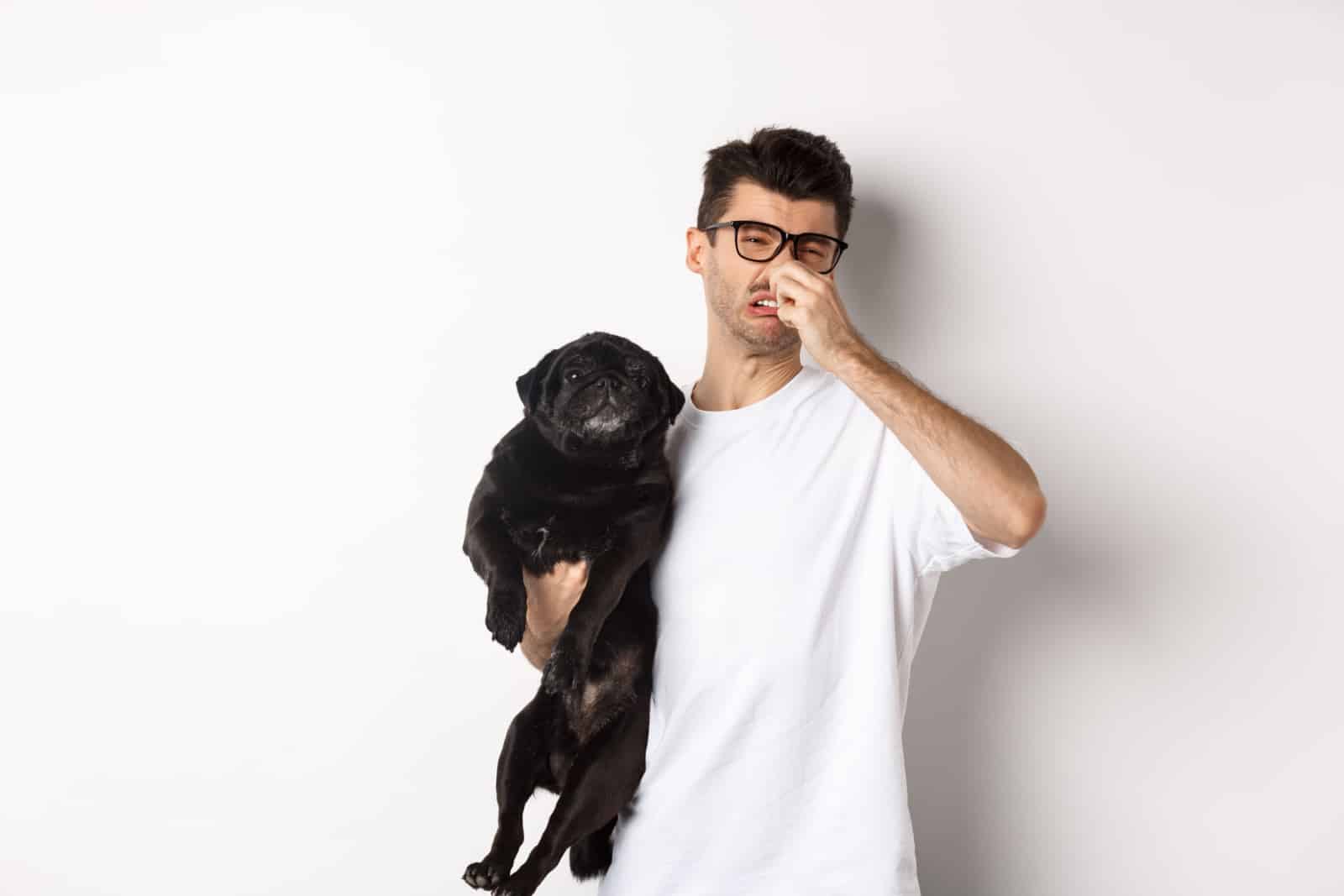Have you just adopted a new puppy, and you’re looking for a way to be the perfect dog parent? Well, you’ve come to the right place as a dog’s nutrition is the number one priority on that very path!
Dog flatulence is a really common phenomenon for many domestic dogs. The major trigger is improper dieting! Not only does flatulence lead to stomach pain, but it can be a real trigger of bloat, disruption of the immune system, and other digestive problems.
Hence, this is the food you should (partially or totally) avoid giving to your dog in the first place…
1. Beans
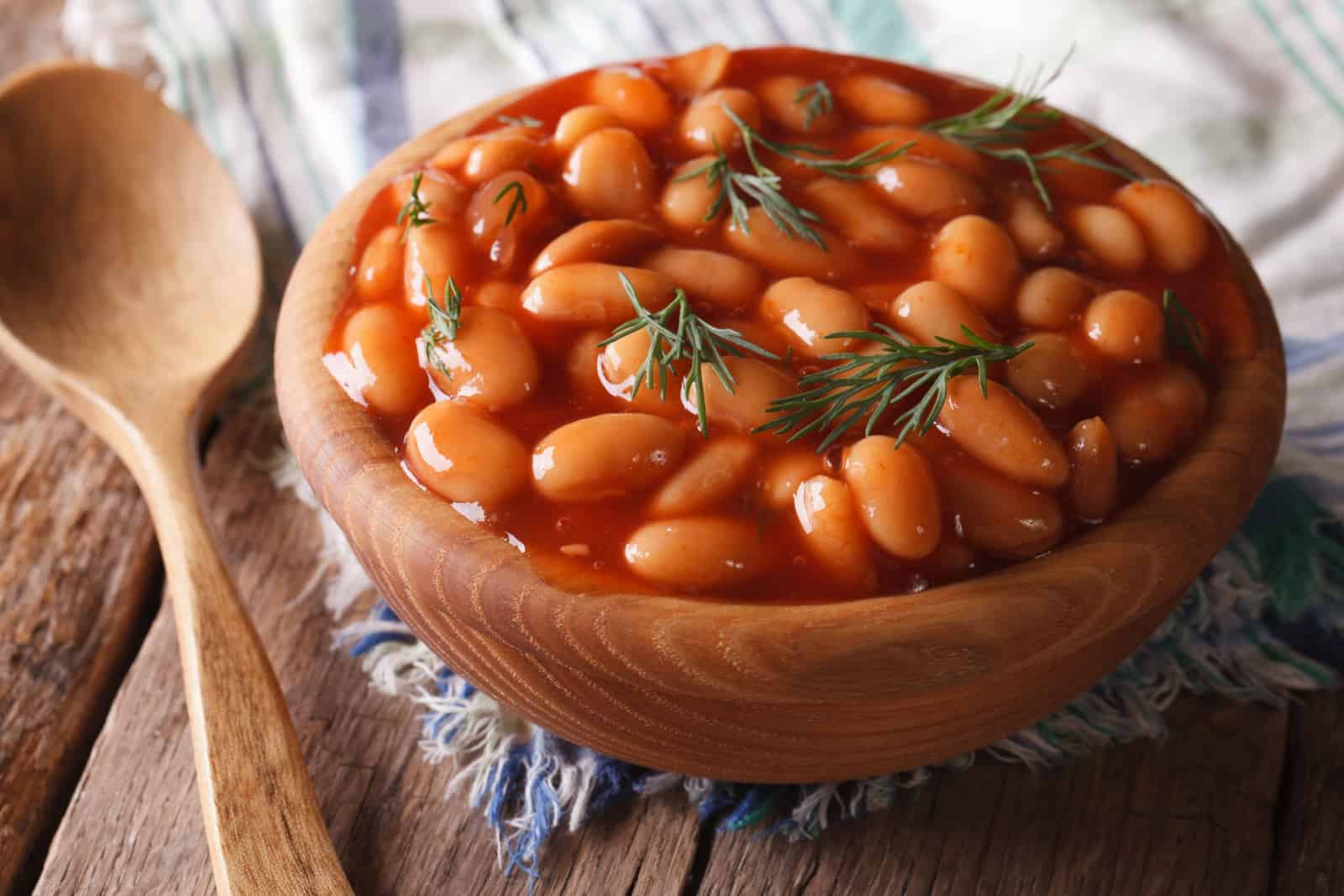
According to T. Hunter, DVM, beans are one of the most common foods that cause gas in dogs. Even though this particular vegetable can be good in terms of plant-based protein – you shouldn’t exaggerate.
That said, I wouldn’t recommend more than 10% of beans in your puppy’s daily diet. You can give it throughout snacks or in a small portion, next to unprocessed carbohydrates, such as brown rice.
Still, knowing that your puppy qualifies within breeds that have a very sensitive stomach – avoiding this vegetable would be the smartest choice.
2. Dairy Products
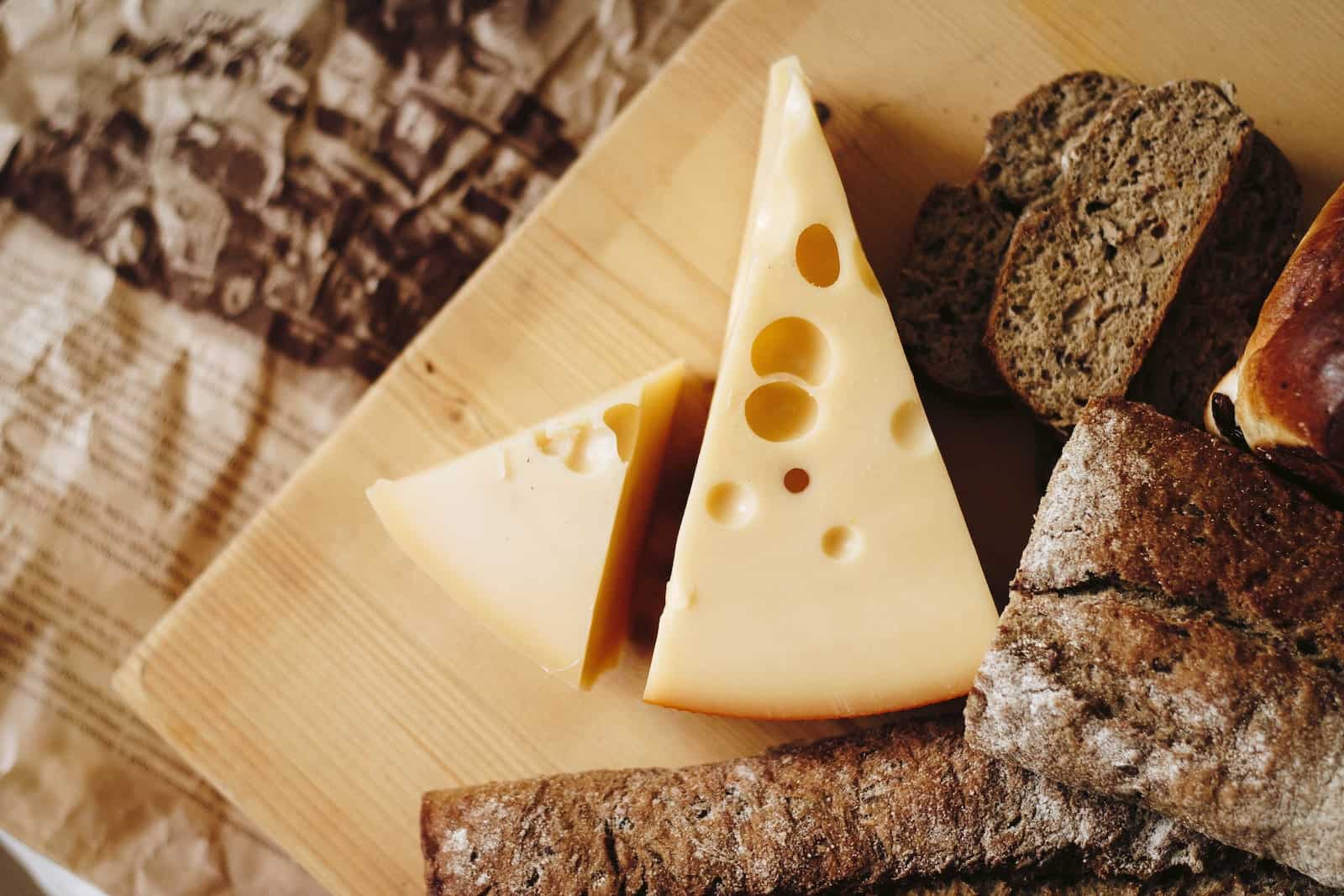
That’s right! As a responsible dog owner, you should forget about giving your companion whipped cream, milk, cheese, or basically any dairy product.
Even though not all dogs are completely lactose intolerant, there’s a good chance that giving too many dairy products will negatively impact your dog’s digestive system.
That said, you are highly likely to deal with dog diarrhea at night, constant flatulence or even bloat, and severe stomach ache. This is a painful experience, both for dogs and owners, which is why you should stay away from milk products at all costs.
3. Peas
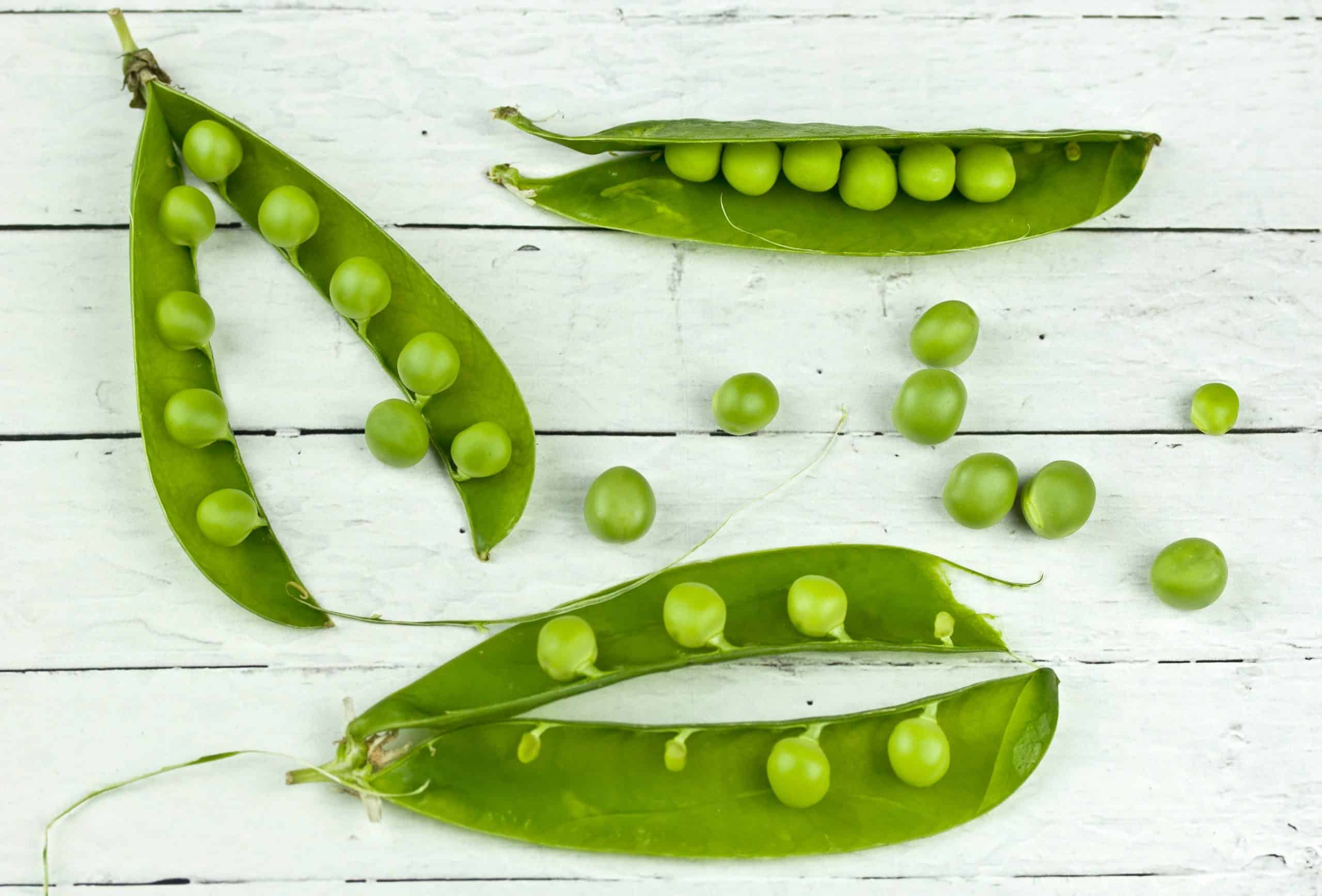
In doggo nutrition – peas equal beans! The difference is that peas, at a certain level, have good antioxidants for skin and eyes. But, nutrition-wise – the logic’s the same.
You should avoid peas except in small amounts given as a side meal or a snack. Despite the fact that peas contain healthy fibers and are a good source of healthy carbohydrates, they negatively affect a dog’s digestive system.
To make things even worse – you should never give your dog peas prior to bedtime. This way, you will decrease the possibility of your companion processing the food properly and increase the possibility of bloat.
4. Spicy Food
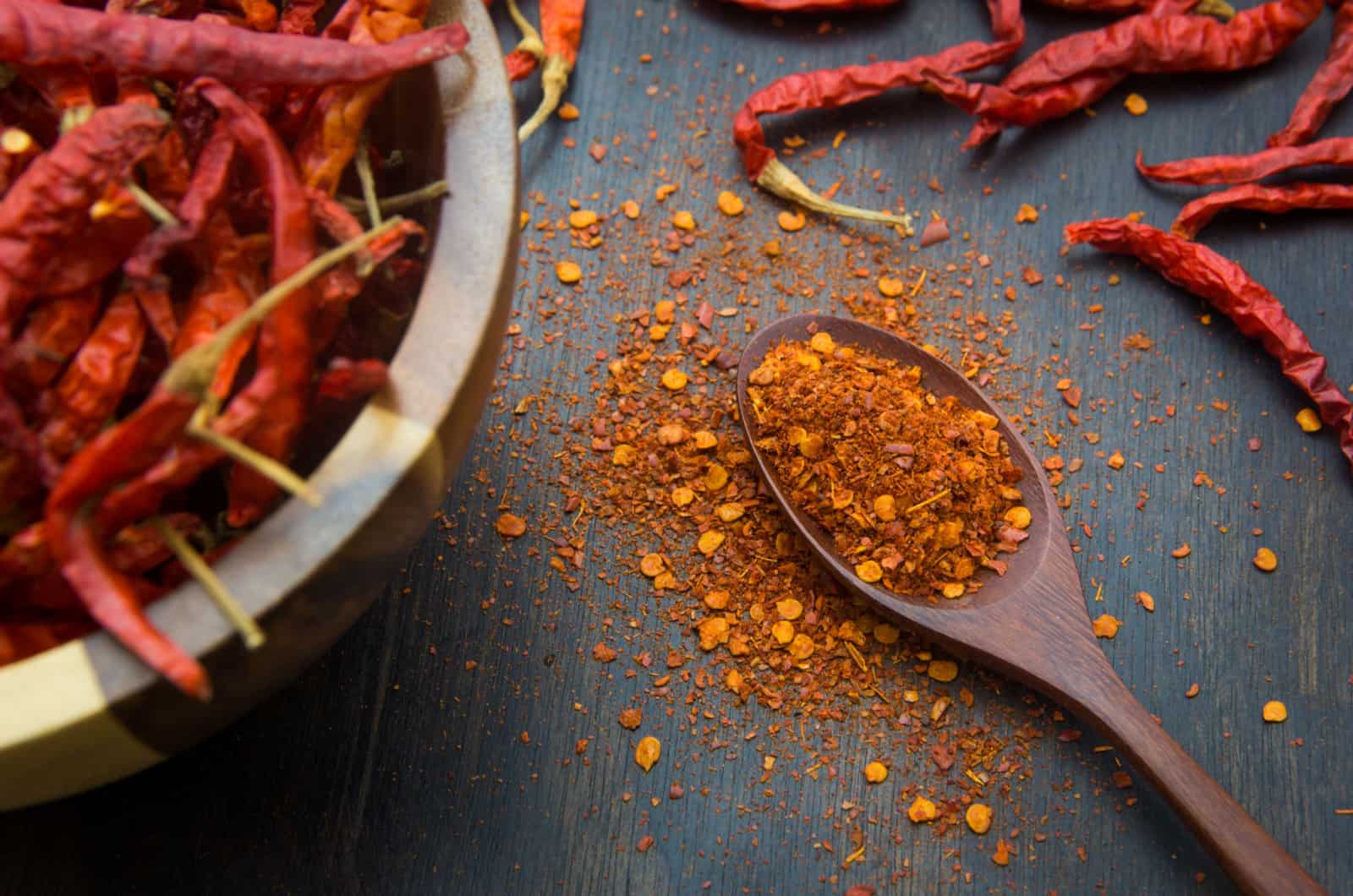
Just because you have a Mexican dog, that doesn’t immediately mean that your Chi or your Xolo loves spicy food! Okay, they might, but is it safe for them?
One-hundred percent – No!
Spicy food is not only a major cause of flatulence in dogs, but in the long run, it can be extremely dangerous and even deadly!
Dogs that eat foods that are regularly seasoned with pepper, nutmeg, or mace happen to have a significantly shorter lifespan than their healthily-fed counterparts.
The same goes for hot spices and chili. You can expect your puppy to have extremely unpleasant digestive problems after eating this sort of food.
5. Your Leftovers
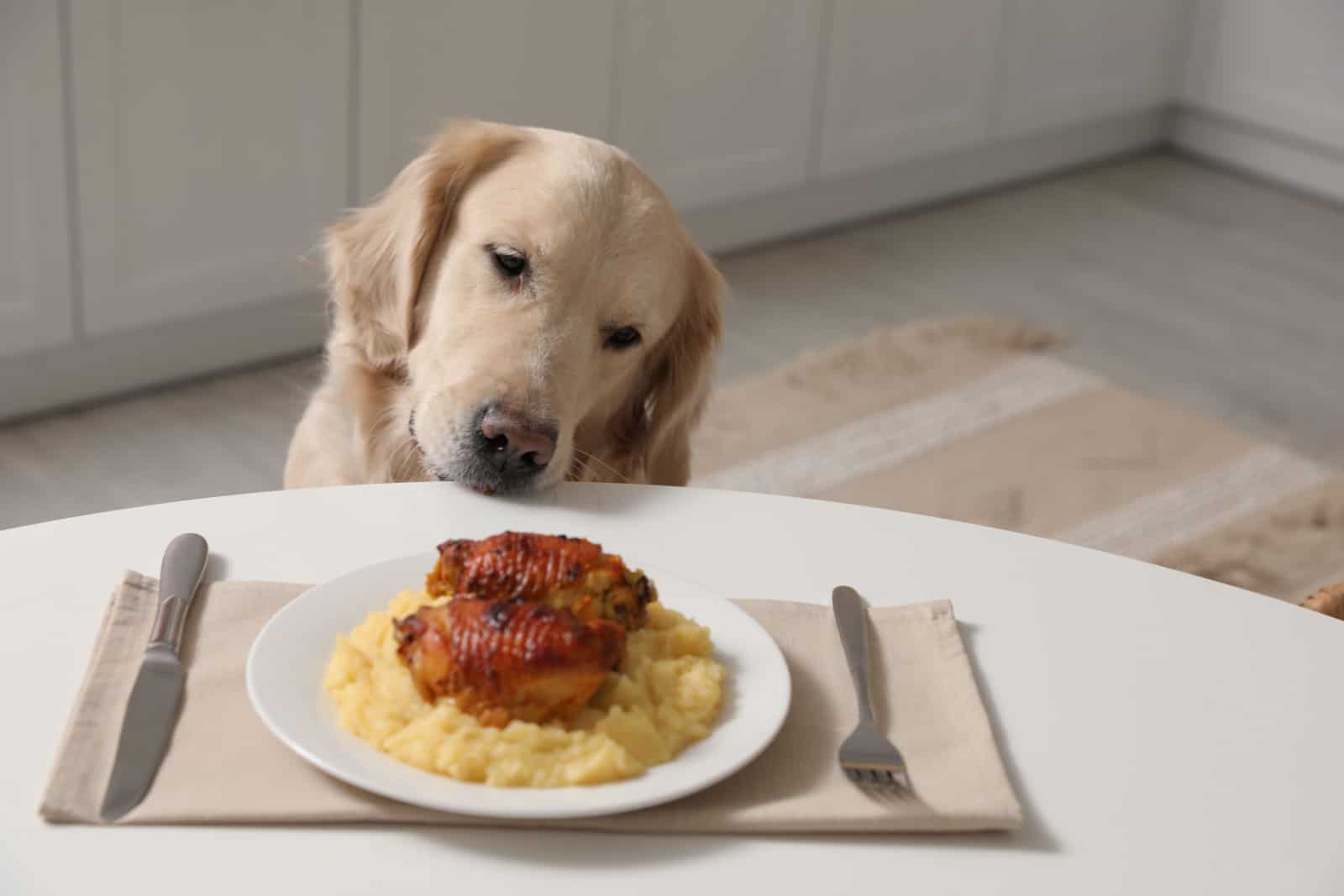
I know how cute you may think your dog is while eating the food from your table, but let me be totally honest with you – hamburgers, pies, and even bagels are off the table if you want your dog to be healthy and… well, not gassy!
Table scraps are generally not recommended due to their high impact on dogs’ weight. There is a positive correlation between dogs that eat table scraps on a regular basis and their obesity level. This especially applies to lazier breeds, such as Pugs, Chis, and Frenchies.
Not only do leftovers cause flatulence, but they are one of the most common triggers of bloat! To an untrained eye, this may sound the same, but it isn’t. While the first implies the passage of rectal gas, the latter represents fullness of the upper stomach.
Therefore, bloating might be way more dangerous, especially if not treated timely.
6. High-Fat Food
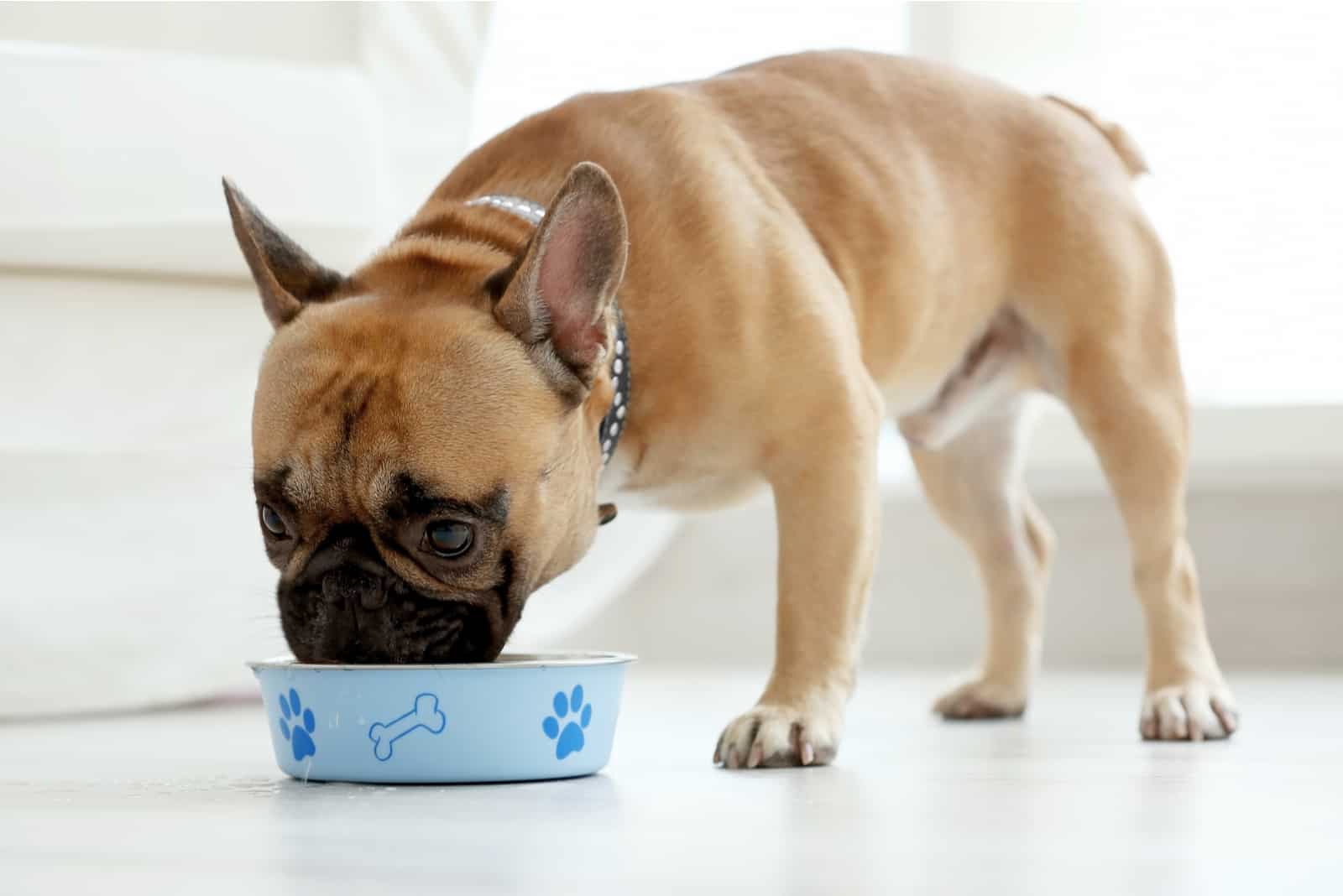
Many owners make the most obvious mistake by thinking that high-fat food is the ultimate way to make their furry friends full and satisfied.
Di Cerbo et al. 1 claim that this happens due to the belief of owners that foods with antioxidant activity are perceived as negative due to low nutritional values.
While that might be partially true – the other side of the coin tells us that foods with a high percentage of fats are more likely to shorten a dog’s lifespan than to extend it.
In addition, puppies that eat high-fat food on a regular basis deal with regular constipation, gas, and flatulence.
7. Low-Quality Food Brands
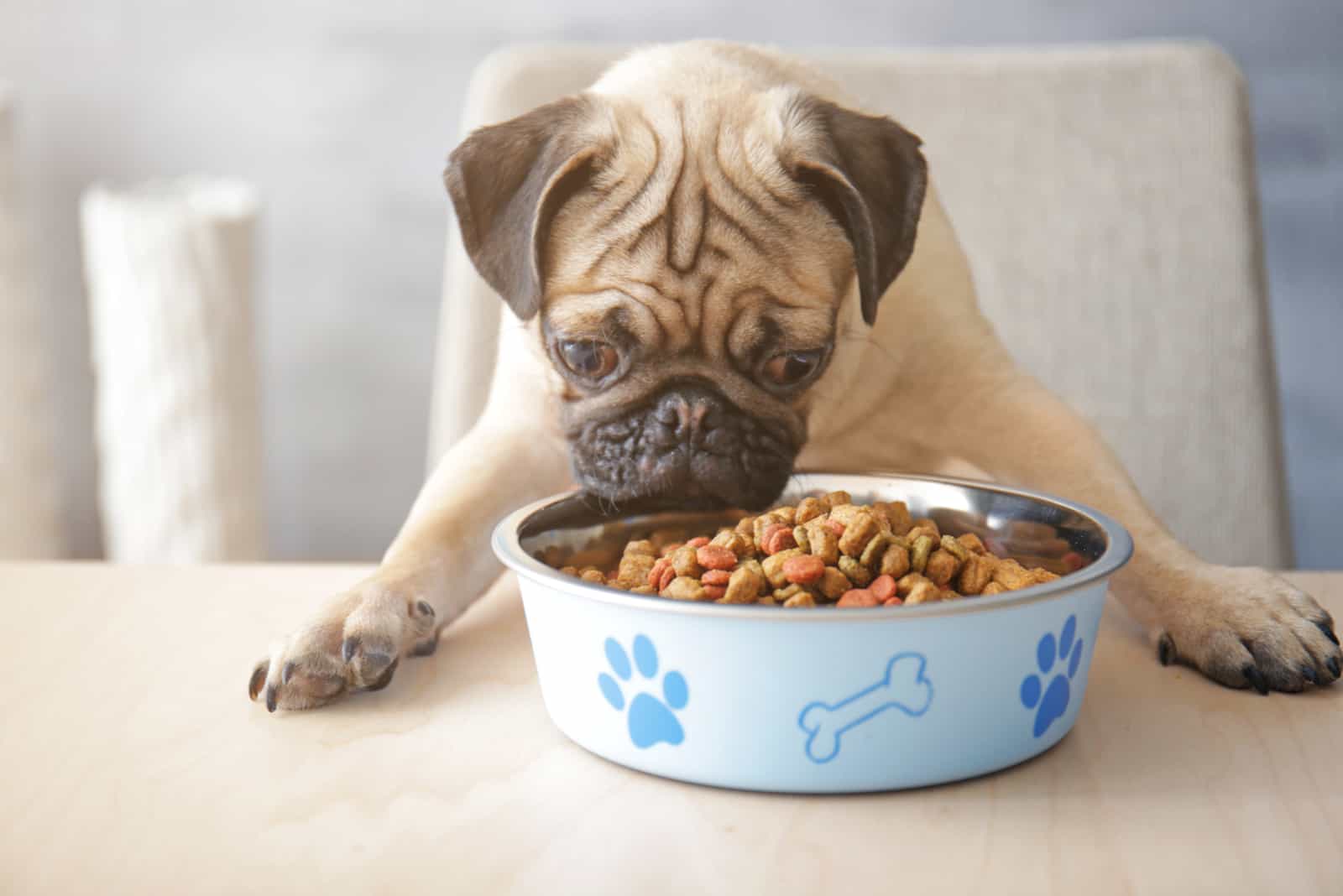
Last, but not least, poor-quality dog food brands are to be avoided! Just because some foods are affordable and “easy on the wallet”, that doesn’t necessarily mean that they’re good for your puppy.
I’m sorry to break it to you, but cheap kibbles and shady wet food brands won’t do any good to your puppy. Quite the opposite – you will deal with a plethora of digestive problems, frequent gas, bad breath, and possibly diarrhea.
I know that it can be exhausting at times, but preparing your dog a nice, home meal could be a great replacement for cheap dog food brands.
This way, you can save tons of money that you would otherwise spend on high-quality dog food brands. Boiled chicken, homemade rice, and freshly prepared vegetables are just some of the ideas that you can use.
How To Detect Flatulence
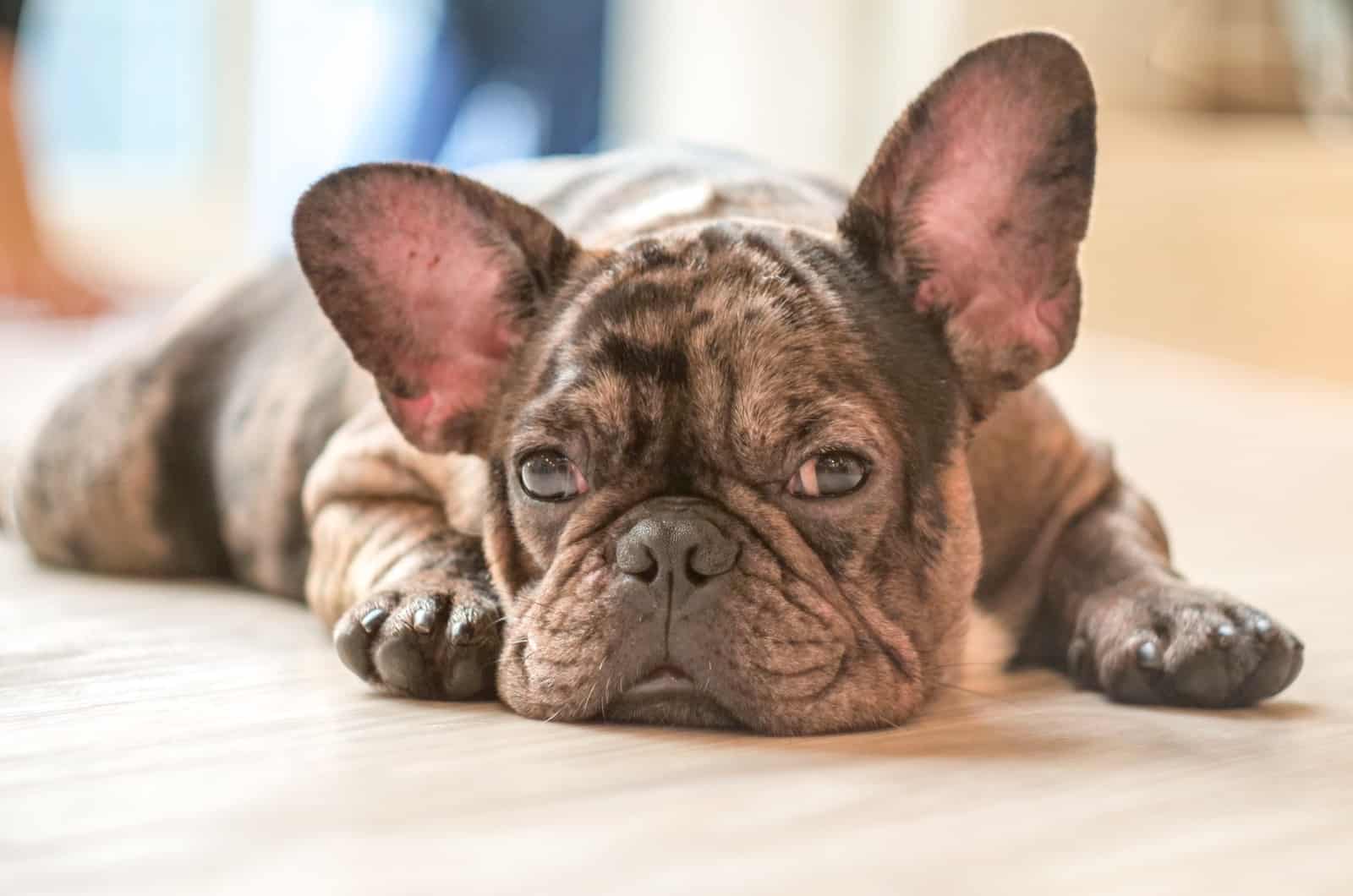
Rumbling from the abdomen and unpleasant gasses are the most common symptoms of this condition. However, you should know that flatulence is also related to stomach distention, weight loss, diarrhea, and a loose stool.
Untreated gasses in your dog might even lead to bloat. This condition is characterized by loss of appetite or refusing to drink water, severe pain in the abdomen, panting, and even retching.
All of these are the symptoms that you should pay immediate attention to. Neglecting them can have severe repercussions, including the death of your dog.
You Can Treat A Dog With Gas With:
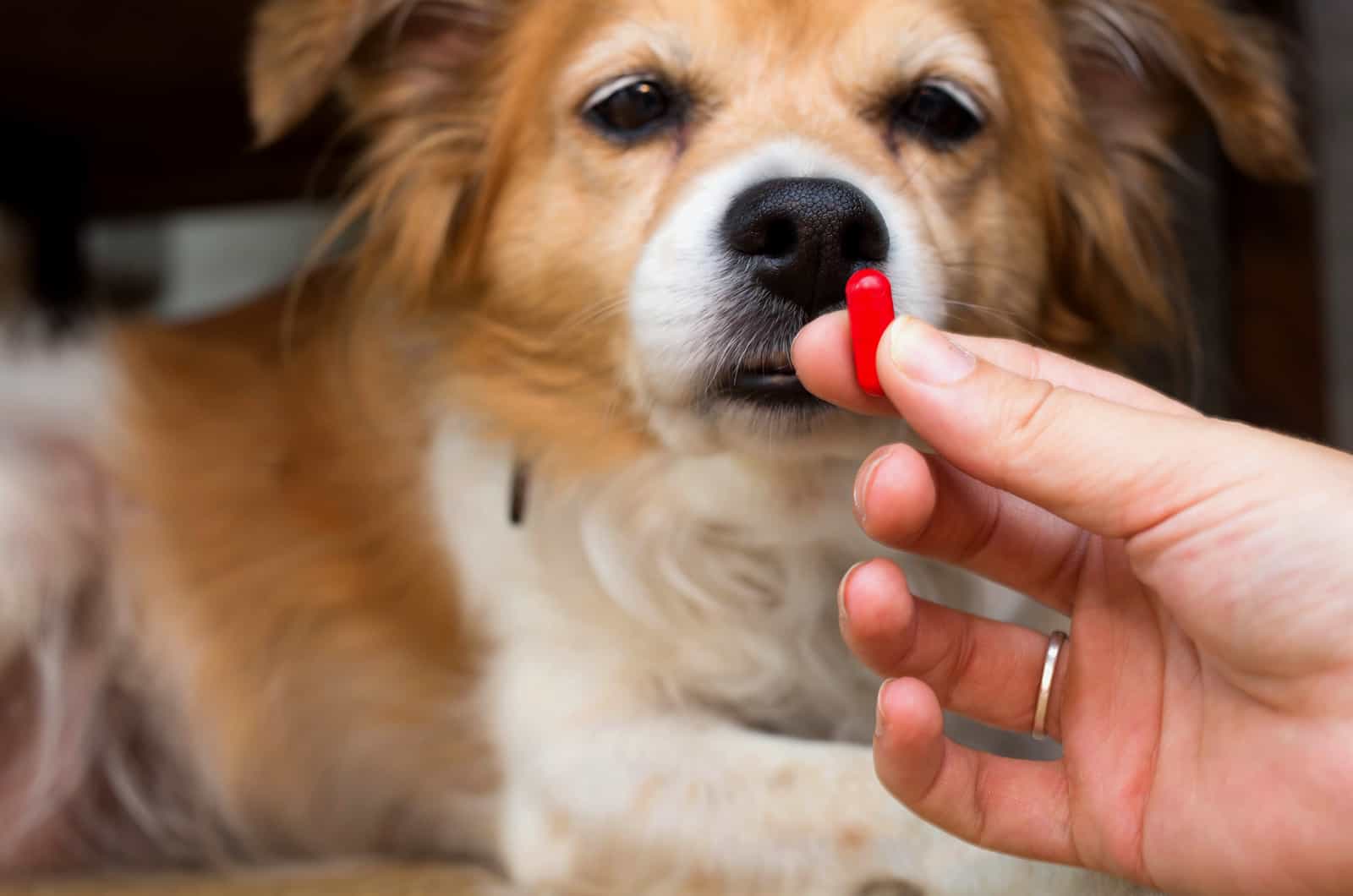
1. Probiotics
According to Hamlin 2, probiotics not only help a dog have healthy digestion, but they also boost its overall immune system. Hence, they are quite crucial in the prevention of gasses and flatulence.
Since most dogs are lactose intolerant and cannot consume probiotics throughout foods, you should consider giving them to your pooch through a pill or a capsule.
Since this particular process is not a walk in the park for many breeds, you can even hide it in canned food or in their favorite treat.
2. Lean Protein
The good thing is – lean protein is tasty, and doesn’t qualify as foods that are healthy, but poor-tasting.
Aside from ground beef, you can always give your doggo chicken breast, whitefish, and turkey. Still, don’t forget that too much lean protein is undesirable as it can be bad for your dog’s kidneys.
You should always find the perfect balance between protein, carbohydrates, and healthy fats.
3. Fibers
Are you wondering what the best sources of green fiber are for your dog? Well, microgreens, berries, and broccoli are a must if you want your puppy never to deal with gas anymore.
Fibers are an important part of your dog’s daily dieting routine. That’s right! Even though they don’t qualify among macronutrients, you should never leave them out. Give them to your puppy as an addition to each meal.
4. Salmon-Rich Formula
Whitefish and other fish-based canned foods are fine, but if you want your puppy to get an adequate amount of omega 3 plus in order not to deal with flatulence and gasses – choose salmon!
The good thing is that even lap dogs can use this formula as it is not caloric and it doesn’t lead to obesity.
On the positive note – salmon adds to your dog’s skin and boosts its overall immune system. Just make sure it is unseasoned and cooked properly.
Conclusion
I hope this list has met your expectations and helped you understand why specific foods cause gas in your dog.
I know that even though we love our doggos way too much, it is sometimes hard to keep a strict eye on their diet.
An extra snack every now and then probably won’t harm them, but still, we need to be careful when giving our dogs specific ingredients like the ones mentioned above.
Read more: 7 Vet Approved Homemade Dog Food Recipes For Kidney Disease
References:
- Di Cerbo, A., Morales-Medina, J.C., Palmieri, B., Pezzuto, F., Cocco, R., Flores, G., Iannitti, T. (2017). Functional foods in pet nutrition: Focus on dogs and cats. Research In Veterinary Science. DOI.
- Hamlin, J. (2011). The use of probiotics as dietary supplements in dogs. The Veterinary Nurse 2(2):82-87.
